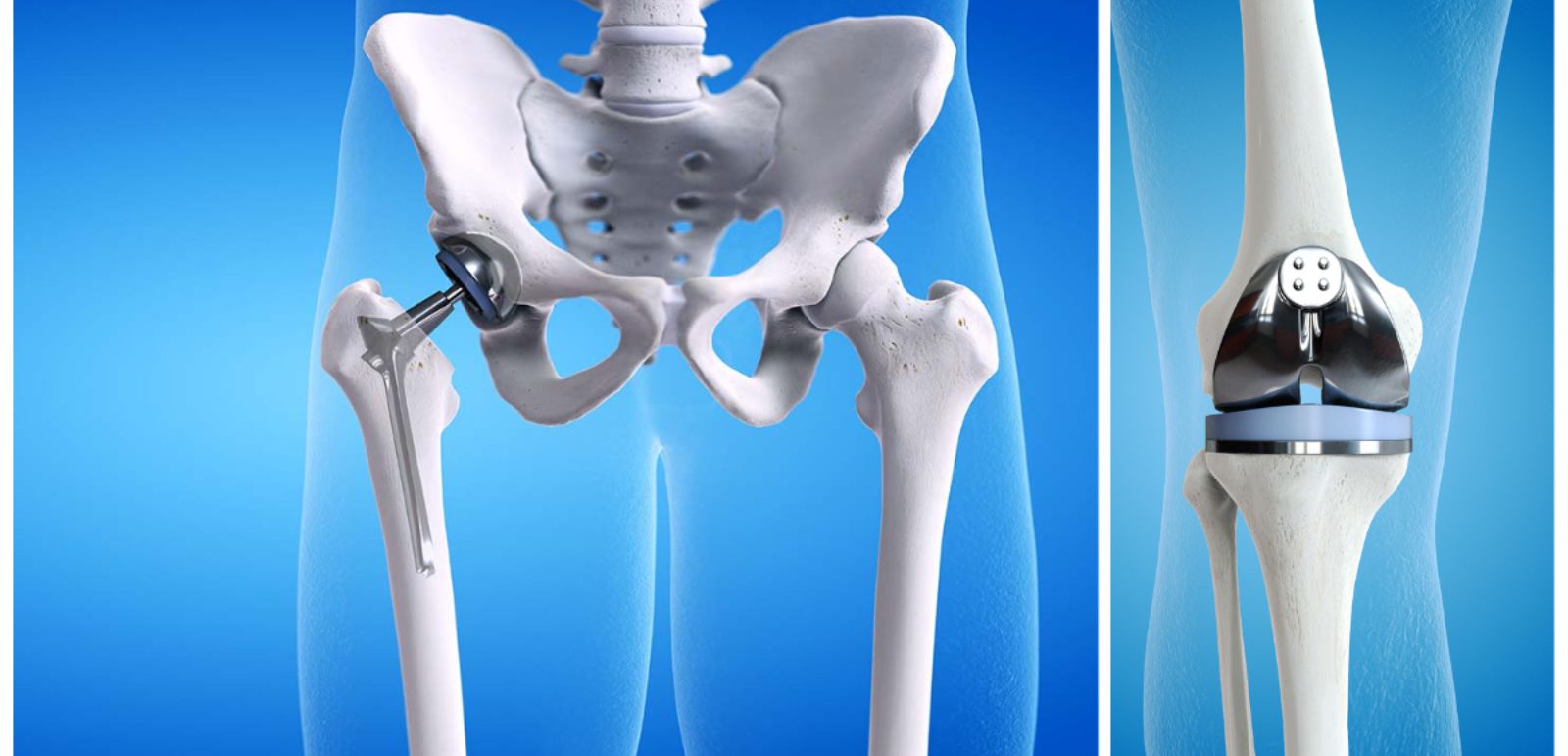
Joint Replacement
What Is Joint Replacement Surgery?
Joint replacement is a surgery used to restore function to a severely damaged joint. This damage is often caused by arthritis, which commonly affects the knees and hips. During a joint replacement procedure, the surgeon replaces the damaged portions of the joints with artificial parts. This can reduce pain and restore function to the affected area.
Joint replacement procedures vary depending on the severity of the injury and the area of the body that is affected. If a patient is experiencing joint pain but still retains motor function in the area, non-surgical solutions such as injections may be able to relieve the pain without surgery.
If the joint damage is more extensive, then surgical solutions might be required to treat the injury. In these cases, joint replacement surgery might only require partial joint replacement, which seeks to treat one small part of a joint that is damaged. In more serious cases, total joint replacement might be necessary, which seeks to replace the entire joint if many components are damaged or degenerated.
What Causes Joint Pain in the Hips or Knees?
There are many causes of debilitating joint pain. Joint pain can occur due to damage to any part of the joint such as your muscles, tendons, ligaments, bone, and cartilage.
Different people will experience different pain thresholds. Some will experience mild pain and sensitivity after specific activities. However, others will experience extreme pain while bearing weight. People with severe pain will have trouble making any movement without experiencing intense pain.
When most people are discussing joint pain, they're often referring to pain from arthritis or arthralgia, which causes inflammation and pain within the joint itself. However, there are many types of conditions that cause joint pain.
Pain can be evidence of degenerative disease, osteoarthritis, broken bones, rheumatoid arthritis, or other joint conditions. Mansi Hospital Joint Replacement Center specializes in diagnosing and treating injuries in two of the largest joints: the knee and hip.
When Should You See a Doctor?
Over time, your joints sustain a lot of wear and tear. Symptoms such as joint pain, tenderness, swelling, stiffness, or difficulty moving one or more joints could indicate severe arthritis, joint damage, or other joint conditions that might require an evaluation by a joint doctor.
While more conservative options like injections or physical therapy may help treat your joint condition, you should consider talking to a doctor about joint replacement if you:
1. Experience extreme difficulty while using your hips and knees during non-intensive daily tasks
2. Are in constant chronic pain despite non-surgical treatments and other remedies
3. Have been diagnosed with osteoarthritis and are experiencing diminished movement capacity.
Before advising total joint replacement, your physician will recommend conservative options. Contrary to popular wisdom, developments and advances in prosthetics mean people of all ages( even the young population) can alleviate pain with joint replacement surgery.
Knee Joint
As the largest joint in the body — made up of the thighbone, the shinbone, and knee cap — the knee is one of the most easily injured joints. If you experience a popping noise and feel your knee give out at the time of injury, suffer severe pain, or struggle with immobility in the knee, these are signs you should consult a joint specialist to determine the severity of your problem.

Hip Joint
The hip joint is made up of two bones: the pelvis and the femur (the thighbone). It is the largest ball-and-socket joint in your body. If you experience limited mobility, stiffness, or pain in your hip, you should consult a joint specialist to determine the severity of your problem.

Non-Surgical and Surgical Solutions for Joint Pain?
Treatment of your hip or knee pain will vary depending on the severity of your condition. If your doctor does not recommend total joint replacement at this time, there are a number of non-surgical hip and knee treatments available including fluoroscopic guided hip injection and Visco-supplementation for arthritis of the knee, lifestyle modifications & pain medications, physiotherapy which may provide pain relief and improved mobility.
For more severe hip or knee joint conditions, you may require total joint replacement. Orthopedic Surgeons at Mansi Hospital will ensure that appropriate conservative measures have been attempted prior to surgical intervention. If it's determined that a surgical solution is required, our team is trained in the latest techniques in hip and knee surgical solutions.
See our FAQ on joint replacement to find out more about conditions, diagnoses, and treatment options.

